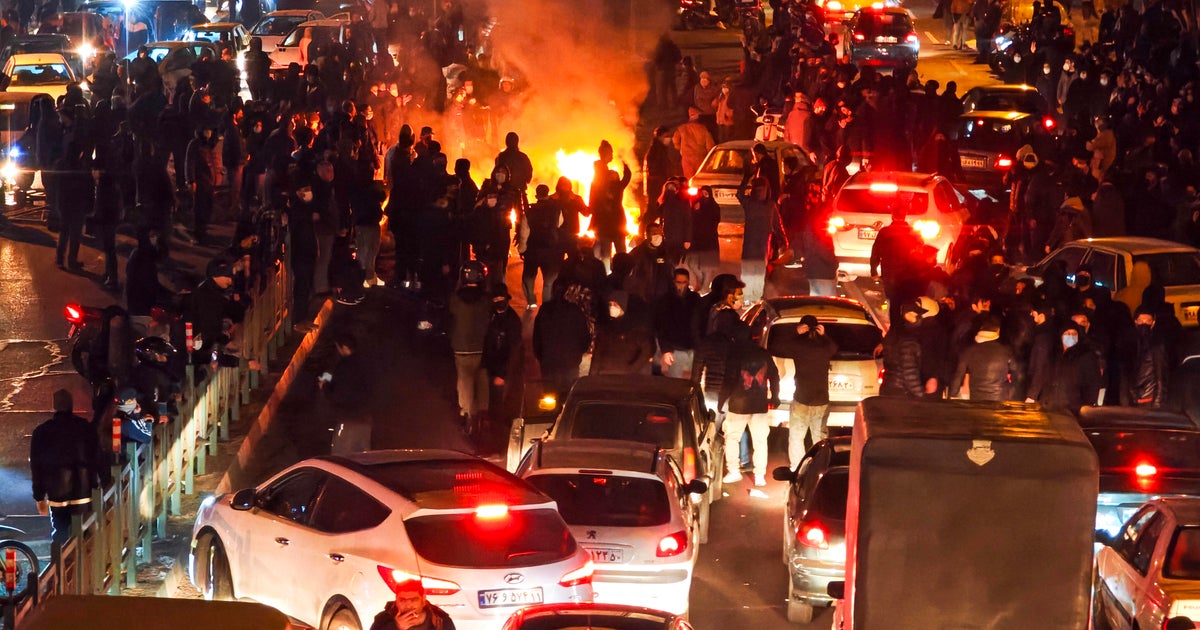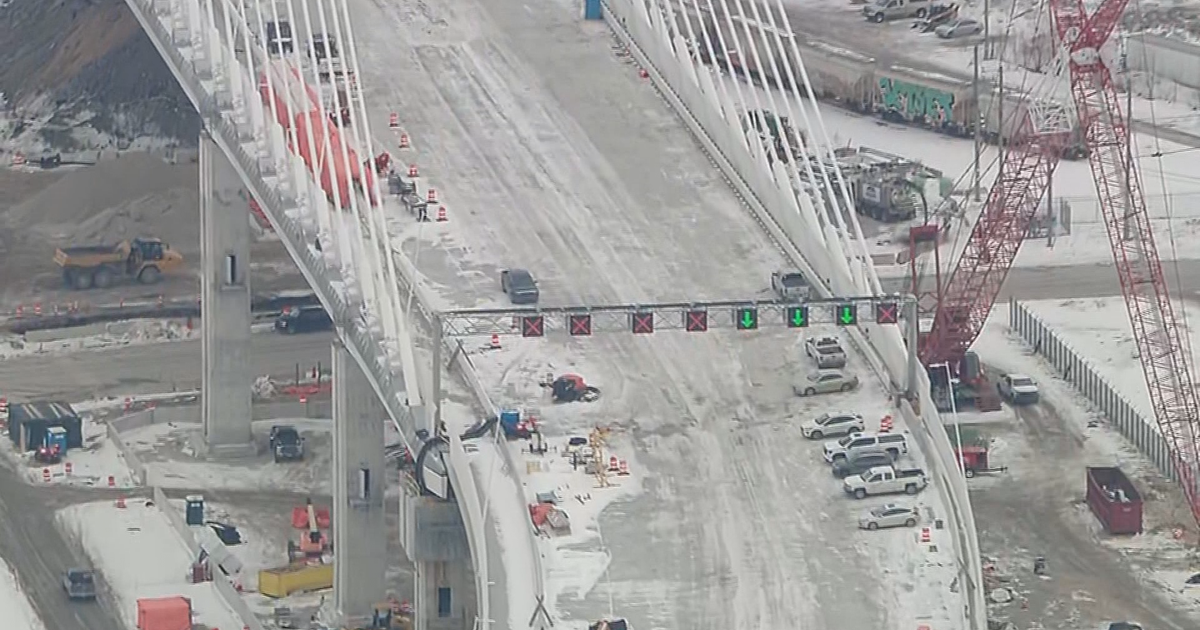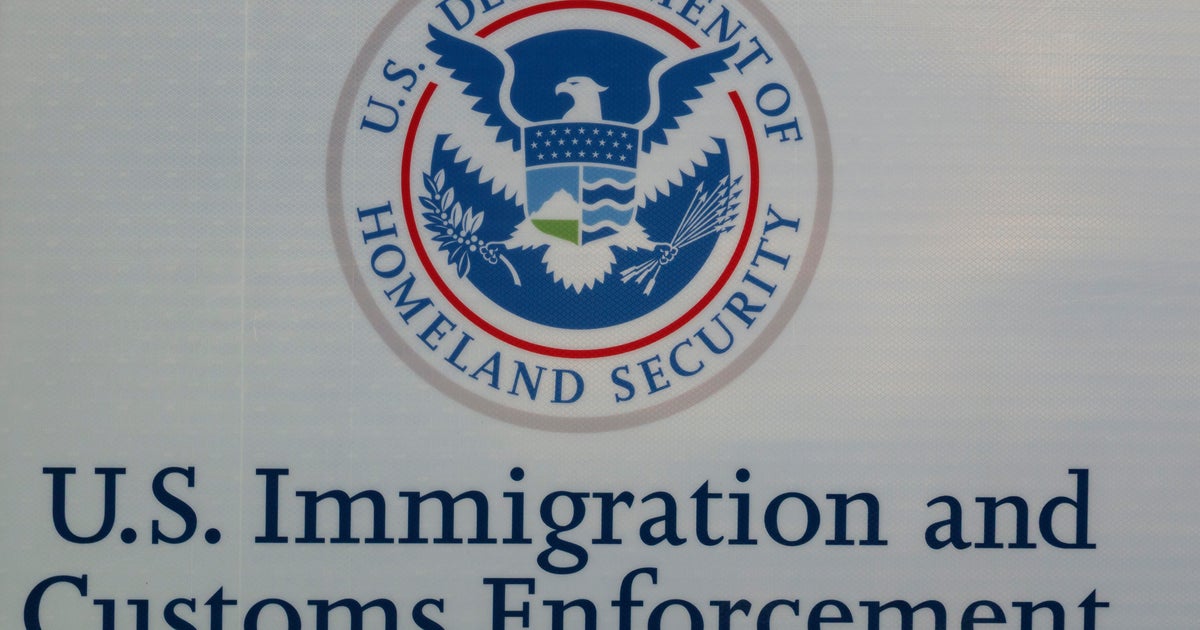Biden weighs invoking executive authority to stage border crackdown ahead of 2024 election
Washington — President Biden is debating whether to invoke a sweeping presidential authority that gained infamy during the Trump administration to stage a crackdown on migrants coming to the U.S. southern border, three people familiar with the plans told CBS News.
Mr. Biden is weighing citing a law dating back to 1952 to severely restrict access to the U.S. asylum system, which has buckled under the weight of record levels of migrant arrivals along the border with Mexico, the sources said, requesting anonymity to discuss internal government deliberations.
That law, known as 212(f), allows the president to "suspend the entry" of foreigners when it is determined their arrival is not in the best interest of the country. The Trump administration used the law several times, including to ban immigration and travel from certain countries, most of them predominantly Muslim, and to bar migrants from asylum if they entered the country unlawfully.
If approved, Mr. Biden's executive action could be announced within the next two weeks, the sources said. An administration official said no final decisions had been made on whether the president would take executive action to address the situation at U.S.-Mexico border, where migrants have been arriving in greater numbers than ever before in American history.
Any significant restriction on asylum would face formidable legal and operational hurdles. Still, issuing an executive order designed to curb illegal crossings at the U.S.-Mexico border could be seen as an important political message from Mr. Biden ahead of the 2024 election. Border policy is one of Mr. Biden's worst-polling issues, with multiple polls showing a majority of Americans disapproving of his handling of immigration.
The executive order would also cement a dramatic immigration policy pivot by Mr. Biden, who vowed to "restore" the U.S. asylum system soon after taking office in 2021. After record levels of migrant apprehensions along the southern border in the past three years and growing discontent in Democratic-led cities receiving migrants, Mr. Biden's administration has embraced some restrictions on asylum.
In fact, the White House brokered an agreement with a group of senators last month that would've granted the president the power to suspend asylum law and summarily expel migrants during spikes in illegal immigration. After insisting on restrictive asylum changes in exchange for supporting more border funding and aid to Ukraine, Republican lawmakers rejected the deal, saying it was not strict enough.
In a statement, White House spokesperson Angelo Fernández Hernández said Republican lawmakers "chose to put partisan politics ahead of our national security."
"No executive action, no matter how aggressive, can deliver the significant policy reforms and additional resources Congress can provide and that Republicans rejected," Fernández Hernández added. "We continue to call on Speaker Johnson and House Republicans to pass the bipartisan deal to secure the border. "
If Mr. Biden decides to invoke the authority, his administration would face significant operational challenges implementing it at scale.
Last year, the administration enacted a regulation that presumes migrants don't qualify for asylum if they enter the U.S. illegally after not seeking protection in a third country. But it has not been able to screen all migrants who cross into the U.S. illegally under those standards, given insufficient numbers of asylum officers, detention beds and other resources. Instead, most border-crossers in recent months have been released with court cases that take years to be decided due to a massive backlog of applications.
The move would also almost certainly face lawsuits if implemented.
While the last version of the Trump administration's so-called "travel ban" was upheld by the Supreme Court, lower courts blocked the government from using the 212(f) authority to render most migrants ineligible for asylum at the southern border.
It's unclear how the Biden administration expects its own effort to invoke the 212(f) authority to prevail in court. U.S. law gives migrants on American soil the right to request asylum, even if they cross the border without authorization.
Lee Gelernt, an American Civil Liberties Union lawyer who successfully convinced federal judges to halt the Trump administration's asylum ban, indicated the government would likely be sued again if Mr. Biden issues a similar order.
"An executive order denying asylum based on where one enters the country would just be another attempt at the exact policy Trump unsuccessfully tried and will undoubtedly end up in litigation," Gelernt told CBS News.










